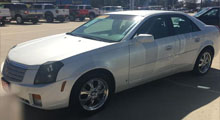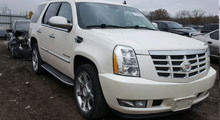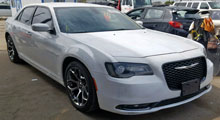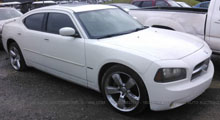4 Things To Look Out For When Buying A Car At An Auction
Like them or not, car dealerships are probably the easiest way to purchase a vehicle without getting scammed. Buying from a third-party seller or an individual is all well and good, but unless you know exactly what you’re doing, it’s easy for someone to scam or con you if you’re not a car enthusiast. The reality is that for most people, car dealerships are the safest and most reliable form of buying a brand-new set of wheels… or are they?
As most of you probably already know in the back of your mind, car dealerships ultimately want one thing and one thing only: a healthy profit. Naturally, they want happy returning customers as well, but everything ultimately boils down to how big of a margin they can get on their profits. As such, the quicker you realize car dealerships don’t always have your best interests at heart, the quicker you’ll be able to learn how to negotiate with dealerships and walk out with a deal you’re happy with.
Car dealerships have over a dozen internal secrets not many people are aware of, so in this article, I’ll be highlighting a few which should, hopefully, help you strike a better deal or walk away from a really bad one.
1. Car dealerships and auctions
This one might come as a bit of a shock to some people, but did you know that car dealerships regularly use public auctions to acquire new inventory? Many dealerships accept trade-in, but that’s not their only way of acquiring cars to sell. Car dealerships, i.e. a representative for the car dealership, will often attend public auctions and bid on cars for the dealership itself.
I know this sounds a bit ridiculous at first, but you have to realize how car dealerships work and operate to understand why they’d buy cars from an auction of all places. If a dealership is going through a particularly rough patch with not many trade-ins coming in, their inventory might be running dry. Having a wide variety of cars in your inventory to display to potential new customers is vital, so most dealerships always try to keep their showroom floor (or car lot) full of vehicles.
What’s more, car auctions are a great way of buying good cars for dirt-cheap, provided you know what you’re doing of course. Dealerships tend to favor government auctions, since most federal and state vehicles are in great condition and have full service history, usually with clean titles.
Why am I telling you this? Because if you know a lot of the cars dealerships will try to sell you come from public auctions, you might as well attend a few and see if you can get the same deal for much less. Without the car dealership’s markup sticker price, you might end up driving home with a car costing half as much as the dealership would have charged you.
2. Kelly Blue Book
Whatever you do, don’t rely solely on KBB for determining the trade-in value of your car. For years, decades even, KBB has been used and cited as a credible source of determining a car’s trade-in value, but that isn’t necessarily always the case. Although a brilliant service and, arguably, relatively precise in over 90% of all cases, Kelly Blue Book sometimes undervalues cars by as much as $5,000.
The more expensive the car is, the greater the chances KBB can undervalue your car for a larger amount. It’s a similar story with Edmunds.com too. While, for the most part, they give reasonably good estimates, they’re not always 100% accurate or precise.
Am I suggesting you scrap using these services altogether? Of course not! What I am suggesting, is that you use them in addition to using NADA (National Automobile Dealers Association). It’s the largest database used by most, if not all, dealers. When trying to determine a car’s trade-in value, always use NADA first, and then back the estimate up with Edmunds or KBB.
3. Don’t make rushed decisions
Like I said previously, car dealerships are in the business of selling cars. The quicker they’re able to sell more cars, the more money they make. Don’t be fooled into thinking car dealerships will just let you walk away without making a purchase. Like any other salesperson, a dealer will try to sell you a car no matter what. They’ll either create scarcity to make you feel like you’re missing out, or instill fear that you’re wasting time by thinking about the purchase.
This is a common sales tactic used to rush a buyer into making a quick and often wrong decision. Often they’ll even throw in certain incentives like rebates or discounts to make it seem like you’re getting a killer deal, but make sure you think everything through before you make a sudden decision you might end up regretting in the future. Car dealerships will always have more discounts and rebates to offer, so don’t be afraid that you’re missing out on anything important by walking away from a deal.
4. Do your research
I know it’s a bit time consuming, and the entire point of going to a car dealership is so that you don’t have to put much time and effort into the entire ordeal, but just think about this for a minute. A simple hour-long research might save you several hundred or even thousands of dollars in the long run. I’m not talking about becoming an expert, but simply getting yourself acquainted with what kind of deals you can expect, how much your car’s trade-in is worth, or even exploring the different dealers you have available in your area.
Car dealerships like to pray on the uninformed, and by going in prepared and asking the right questions or showing some knowledge on the matter, they’ll be discouraged to impose a higher price they usually like to quote for those less informed.





